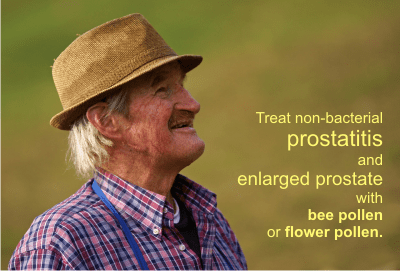Your grandpa doesn’t want to eat enough? Have you noticed he doesn’t have an appetite anymore, he catches a cold more often or has lost some weight? Try a natural supplement to improve its health state.
Children and old people have this problem of malnutrition. Although this is a rather tough word, basically it means their diet is poor. For one reason or another.
Children want only sweets. And old people want food with a specific taste: some want only sour foods (though this was not a habit at a younger age), others prefer bitter or spicier ones. And neglect all the others.
This is considered a normal reaction of the body (the lust for a certain taste is triggered by the overall condition of the entire organism)
Yet, this selective eating (aka impairment of taste or smell) doesn’t cover all the requirements of the body.
The problem is even more serious in people with health problems. Protein energy malnutrition is especially common in elderly, hospitalized patients.
Among other causes that cause loos of appetite and thus undernourishment: thyroid disorders, undiagnosed infections and dental or oral health problems, side-effects of conventional drugs.
 The bad news is that elder people are even less obedient than children. They have a way of telling you that they have lived enough to know what to do, what to eat and when to do it. if you don’t understand this, it only means you are disrespectful. Arguments with elder people are always lost fights.
The bad news is that elder people are even less obedient than children. They have a way of telling you that they have lived enough to know what to do, what to eat and when to do it. if you don’t understand this, it only means you are disrespectful. Arguments with elder people are always lost fights.
Besides, protein-energy malnutrition is common in elderly people, especially in aged hospitalized patients in whom malnutrition is an important factor of morbidity and mortality. Even more, aged populations show a slow decline in their ability to recover from a malnourished state or after some diseases.
Is malnutrition in elder people so dangerous?
Malnutrition can surface and/or worsen intrinsic age-related changes, such as digestive tract alterations, protein metabolism and immunological abnormalities. In elderly women, lean body mass, skeletal muscle function and immune status fail to adapt to low-protein intake.
Studies have shown that aged rats accommodated less efficiently to a long-term dietary restriction than adult rats, particularly in terms of protein metabolism. In old rats, malnutrition induced a dramatic loss of body weight and affected nitrogen balance and tissue protein content, especially at the splanchnic and muscle level. It is therefore clear that on a molecular level, age-related malnutrition is accompanied by impaired protein metabolism.
Which is bad.
So, what can we do?

Turn to supplements. There are lots of supplements meant to improve appetite which are not in pills form. Old people are already taken other pills for their health conditions, they will not gladly accept new ones!
Bee products are highly recommended! Honey instead of sugar is an absolute must! Royal jelly, bee bread and bee pollen are excellent choices. Royal jelly has to be taken by spoon, early in the morning, so your grandparents might just refuse it. And while beebread would be the best choice, it is hard to find and pretty expensive. That’s why bee pollen are the most accessible and reliable one.
Bee pollen makes an excellent supplement for elder people!
Fresh bee pollen contains nutritional substances needed to help malnourished people. Bee pollen comes in different forms, but the fresh grains are the ones which contain the most effective composition. Unfortunately it is not easy to find fresh pollen, because due to a rather high content of water, it needs to either be frozen or dried and then be kept at room temperature. By drying some of the good components go away, but bee pollen still remains a remarkable supplement.
Bee pollen improves mitochondrial activity and muscle protein in undernourished elder people
• The study conducted by Jérôme Salles et al. and published in 2014, “Bee Pollen Improves Muscle Protein and Energy Metabolism in Malnourished Old Rats through Interfering with the Mtor Signaling Pathway and Mitochondrial Activity”, evaluated the effect of fresh bee pollen supplementation on refeeding efficiency in old malnourished rats.
The study was made on 22-month-old male Wistar rats, which were given poor food for 12 weeks. Compared to control groups, the rats that received monofloral bee pollen showed a significant increase in muscle. The malnutrition period reduced the muscle protein synthesis rate, but the 10%-pollen diet was able to restore these parameters.
Also due to food restriction, mitochondrial activity was depressed but then improved by refeeding with fresh bee pollen-containing diets.
The study conclusion: Refeeding diets that contain fresh monofloral bee pollen improve muscle mass and metabolism in old, undernourished rats.
Scientists have shown that in rats, as in humans, the response to refeeding is affected by aging: Walrand S et al. in 2000, Chambon-Savanovitch C et al. in 1999, Chambon-Savanovitch C. et al. in 2001.
It was shown that by adding a very high amount of protein very early to the refeeding diet in old malnourished rats, nutritional and immunologic variables can be improved.
Therefore, elderly malnourished people may require higher amounts of protein in their refeeding diets, possibly due to increased protein utilization by splanchnic tissues.
! According to naturaldatabase.com, taking bee pollen with pain killers (NSAID) can make the prescription drugs less effective. The same effect happened for supplementation with ginkgo biloba or glucosamine.
• The study “Citrulline modulates muscle protein metabolism in old malnourished rats.“, by Osowska S et al. from France, published in 2006, showed that citrulline supplementation (an amino acid) led to higher protein synthesis and protein content in muscle.
The conclusion was that realistic and safe therapeutic approaches based on nutrient supplementation, e.g., amino acids, are able to improve muscle protein metabolism in the frail state related to malnutrition in aging.
Starting from here, using bee pollen, which contains high concentrations, not just of amino acids, but also other key nutrients, could offer a valuable alternative approach. Read more on What is the Composition of Bee Pollen.
Stakich BEE POLLEN GRANULES 1 lb (16 oz) – 100% Pure, Natural, Unprocessed, available at Amazon.
Bee pollen treats malnutrition in patients with liver cirrhosis.
Malnutrition, especially protein-calorie malnutrition, is common in patients with liver cirrhosis. When malnutrition appears, the complications increase, liver function deteriorates, and the prognosis of patients with liver cirrhosis worsens.
• A study from 2010, “Compound Pollen Protein Nutrient Increases Serum Albumin in Cirrhotic Rats”, investigated the nutritional support of Noveliver, a new compound pollen protein nutrient, in the cirrhotic rats induced by carbon tetrachloride (CCl4).
The study’s conclusion was that both the Noveliver and the compound pollen protein nutrient increased the serum albumin and ameliorated malnutrition in cirrhotic rats (the recovery of serum albumin might be related to the hepatic damage repair and liver regeneration).
Other references:
https://www.ncbi.nlm.nih.gov/pmc/articles/PMC4276980/#B4-nutrients-06-05500
Picture source: pixabay.com



